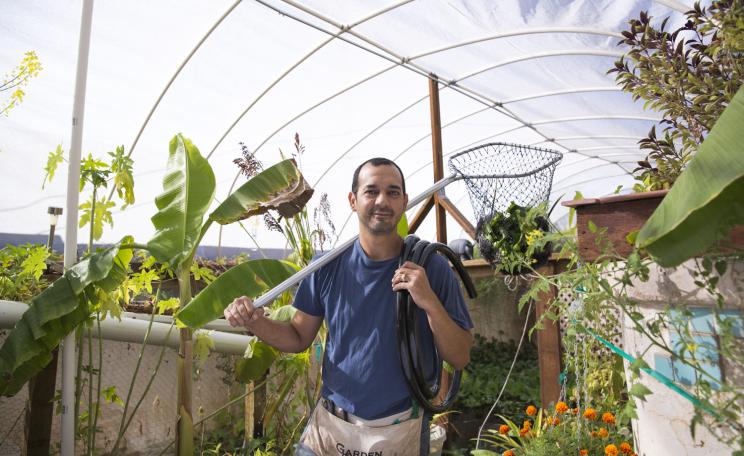A society beginning to move from one epoch to another requires the development of an especially flexible, critical spirit.
From the very beginnings of the capitalist, industrial system, society began treating nature as property, something to be exploited, squeezed and discarded. This had a social dimension too, because if nature was to be exploited unsustainably, this would require expropriating the people who traditionally exercised stewardship over it.
Carolyn Merchant made a key contribution in explaining this relationship. The gender issue was her starting point: the expropriation of women led to an attitude of forcing nature to bend to men’s will, which in turn presupposed a reductionist and mechanistic approach to science and knowledge. Simplified, linear systems - including systems of thought - make it easy to command both nature and society.
In striving to re-connect with the ecology, we must overcome this alienation. Our focus here is on philosophy, i.e. how we reflect upon the world - a reflection increasingly recognised to involve not just intellect, but feeling and empathy.
Bubbling away
As humans co-evolved with nature since our origins, the mechanistic mindset is actually an unnatural imposition. In conceptualising the rapprochement between traditional belief-systems and today’s cutting-edge knowledge, Fritjof Capra made an important point: as the mechanistic world-view is challenged in recent scientific revolutions, notably relativity and quantum theory, Capra discerns a return to traditional ways of thinking/feeling.
Moving forward to an era of sustainability would thus imply a re-connection with some broken thread from our earlier heritage. This doesn’t mean romanticising ‘tradition’, which had an aspect which was elitist and marginalising - think class, caste, gender, slavery etc. - but re-connecting with the healthy aspect - which I've begun calling ‘deep tradition’.
This is being kept alive by today’s increasingly forceful indigenous struggles … a defence against genocide and also a defence of nature. Such a dis-alienation will be highly relevant to a new ecological practice.
Just to take the single example of the Native American Iroquois people, the relevance of their traditions to contemporary peer-to-peer structures in society and economy is emphasised; in theorising these, we draw upon Iroquois ‘7th-generation thinking’; while veteran Iroquois activist Oren R. Lyons recently helped create an innovatory solar-energy urban farming architecture.
A society beginning to move from one epoch to another requires the development of an especially flexible, critical spirit.
In fact, there was always, bubbling away as an undercurrent, a yearning to transcend the limitations of mechanistic thought. Dialectics is a term which I find really useful to encapsulate this, because it somehow brings together three important currents: (1) systems theory, (2) traditional knowledge/belief, and (3) a non-mechanistic science premised on complexity.
Dialectics-based education
We’ll discuss these specific features more fully later, but just to give an initial flavour: the notion of contradiction, or the unity of opposites, defines both the essence of something, and its intrinsic propensity to change.
For example, as Capra rightly says, the quantum wave-particle duality would hardly shock a traditional thinker, while the epic research of Jospeh Needham illustrates the relevance of dialectics – in this case Chinese Daoism – to the history of science.
Equally important is the idea of a slow buildup of quantitative change giving way to radical step-level change: such phase transitions - for example from liquid to solid or gas - form one of the big themes of today’s research: even the Big Bang might be understood in this way.
In a sense, dialectics is about training the mind to operate like the natural system it in fact is: neurons form self-organising networks, the brain has no command centre, its structures are emergent from its own fabric; according to some arguments, the brain maintains itself at a point of ‘criticality’, namely the creative zone where phase transition is very close. Thus, by embracing the concept of phase transition, dialectics is tapping-into the way mind itself physically works.
More on this later, but just to move to a practical note, how can we re-train ourselves today? One way might be a dialectics-based education, which on the above reasoning, should unleash creative faculties.
Realise transition
A big issue here would be to make education relevant to people’s lives. Since dialectics speaks about a clash of opposites, this could have implications in exploring social realities. In the movie Half Nelson (directed by Ryan Fleck), Ryan Gosling stars as a teacher in a tough inner-city school who teaches dialectics, and engages with students in a way I find very believable.
The scenario possibly draws on the work of Matthew Lipman, who taught philosophy, particularly to students in remedial classes, typically deprived and marginalised … somehow, if they are alienated from the order which alienates us, this might well make them the most advanced dialecticians!
And in fact, in Half Nelson, it’s the teacher who eventually finds himself mentored by one of his pupils - confirming the words of Brazilian educationist (and dialectician) Paulo Freire, that “education must begin with the solution of the teacher-student contradiction, by reconciling the poles of the contradiction so that both are simultaneously teachers and students.”
So if contradiction is a key principle of dialectics, can we apply this to dialectics itself? There is in fact an interesting duality between contemplation and activism - and is this perhaps the dynamic contradiction which keeps dialectics interesting and relevant?
Thus, Daoism – being careful not to simplify it – perhaps illustrates the contemplative side. On the other hand, if we’re to realise transition - itself an example of phase-change - from one era of our history to another, this will require a will to bring about change, actively.
As Freire again puts it: “A society beginning to move from one epoch to another requires the development of an especially flexible, critical spirit.”
This Author
Dr Robert Biel teaches political ecology at University College London and is the author of The New Imperialism and The Entropy of Capitalism. He specialises in international political economy, systems theory, sustainable development and urban agriculture.







